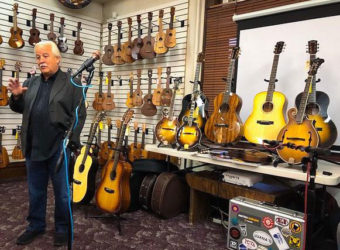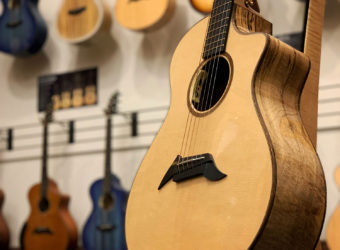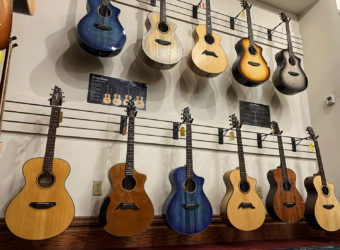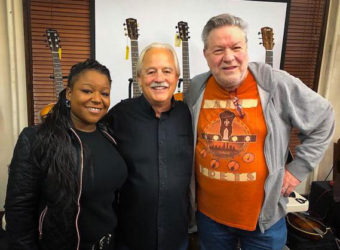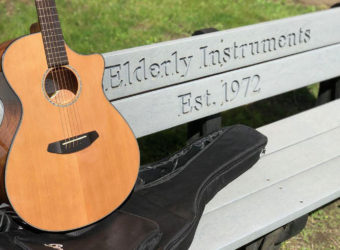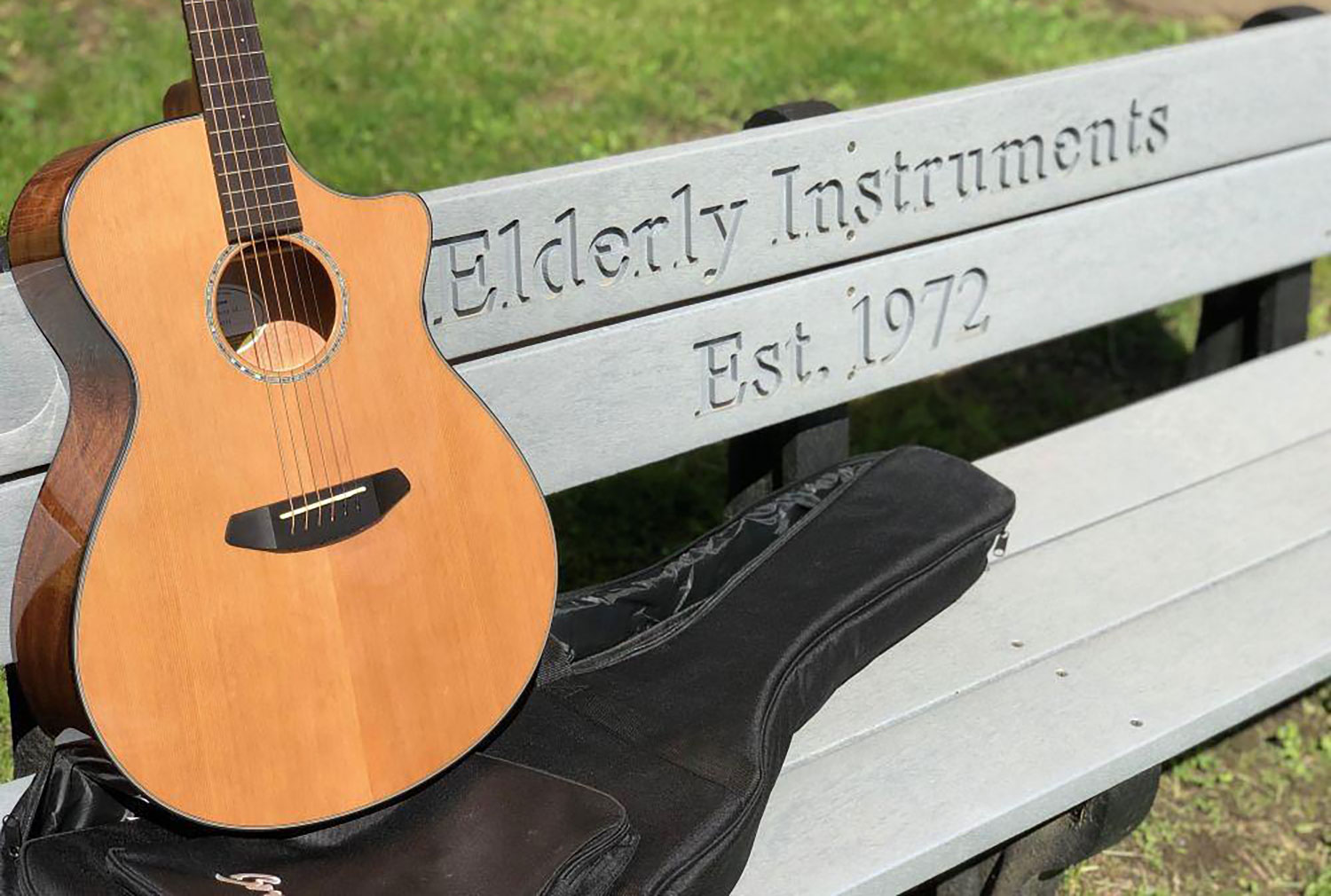
In 1971, a twentysomething Stan Werbin, now the owner of Elderly Instruments, saw a fortuitous advertisement in an Ann Arbor newspaper. “’Old Gibson Les Paul for sale,’ and then it said, ‘a nice elderly instrument,” said Stan. “I thought oh, that has a nice ring to it.”
At the time, Stan and his girlfriend had just finished graduate school. Stan suggested they buy and sell old instruments out of their tiny Ann Arbor apartment as they figured out what to do next.
“I had been playing music for maybe eight, nine years at that point,” said Werbin. “I suggested that, near as I can tell, in this day and age, the new fretted musical instruments that were being made—banjos and guitars particularly—were not being made as well as they were in previous years,” said Stan.
So, they began going to pawn shops and second-hand stores to hunt down better quality vintage instruments and re-sell them—and they used the newspaper ad’s turn of phrase to christen his pursuit. Nearly fifty years later, Elderly Instruments, now with Stan’s daughter Lillian Werbin at the helm, has grown into the one of the most respected sellers of new, used, and vintage fretted instruments in the world.
Elderly now operates through their brick and mortar store based in Lansing, MI, but their first location was nestled in the basement of the 541 building on E. Grand River Avenue in East Lansing, MI, about ten minutes across town from where they are now.
“When we opened the store in East Lansing in ’72,” said Stan. “The first day we sold a pick. One pick.”
But, the next day, they sold a capo, and things continued to build from there. By 1975, they had a mail-order catalog that shipped internationally.
Finally, in 1983, they moved into their present location in Old Town Lansing, MI, a town known especially for its rich folk music scene—which is how Stan’s daughter, Lillian Werbin, got professionally involved with her dad’s business in 2014.
“I was adopted in 1990, so I grew up around Elderly, but never really worked there as a kid,” said Lillian. “But, then I got a public relations degree from Western Michigan University, which is in Kalamazoo. Kalamazoo is actually another ‘folk’ hub city—Ann Arbor, Lansing, and then Kalamazoo have the kind of same acoustic music scene. So, I got into the acoustic music scene there and towards the end of college I asked my dad if I could work part-time at Elderly.”
Though Stan jokes that, at the time, they didn’t need any more employees—he quickly recognized Lillian as an undeniable asset to Elderly’s future with her tech-savviness and education in marketing. Lillian, too, was inspired by the potential in Elderly.
“At the time, it was a bit of a ‘what’s happening next?’ kind of thing. We were scraping through at the tail-end of a recession and you know, as the daughter, you’re thinking like, what are my parents’ plans here?,” said Lillian. “I found myself trying to envision what the business looked like if I were in dad’s shoes and, between the two of us, considering how we could bring our business into the 21st century without changing the heart of it.”
Having agreed to maintain their depth of expertise and taste in high-quality instruments, Stan gave Lillian the permission to streamline their backend processes, which included updating their phone system, their Point of Sale (POS) system, and their website—a decision that ended up being a vital part of their resilience during the pandemic.
“The timing of the new technology was very fortuitous for us. Like, in 2014 when Lily first came to work here, we were working on a point-of-sale system that was first installed in 1988. Let’s just say it was out of date in a lot of ways,” said Stan. “If we hadn’t replaced that, then we probably couldn’t have made it through COVID.”
In 2021, Lillian became the president of Elderly, though she stresses that they are still very much equal partners in the business. Lillian continues to learn from her dad’s approach to sales and impeccable taste in instruments—which has included Breedlove instruments since 2002.
“Let’s face it, if the customers didn’t like Breedlove, or we couldn’t convince them to like them, we probably wouldn’t have them. You can’t consistently sell a pretty guitar that doesn’t sound good. These sell because the whole package works for customers,” said Stan. “Sustainability is of course a real today kind of thing and Breedlove does this better than anybody out there.”
Next year will mark the fiftieth anniversary of business for Elderly Instruments, and while Lillian and Stan are planning to put together some sort of celebratory event for the milestone, they are both heavily focused on the future of Elderly.
“We’re hoping to put on a 50th celebration, but we’re also trying to look straight ahead,” said Lillian. “Watch our website. In the next couple months we’re going to be launching some new community-based programs, trying to make sure that people can better their craft and that we’re right there at the heart of it.”
Learn more at elderly.com
